Sequoya La Joy, Louisiana, USA, SSH Blog Correspondent
As a woman, street harassment is nothing new to me. I can remember being whistled at in the Chicago suburb I grew up in when I ran into the gas station to get cream sodas and my mother pumped gas. I can remember being on road trips with my mother and watching her dodge the strange men at rest stops and road side cafes who tried to talk to us both. I commuted to and from work and school for four years via foot, bike, or city buses. Men have groped me as I have gotten on and off the bus, followed me to my job, followed me to my stop, and screamed at and touched on the bus and the street. However, just a few months ago, I bought a car.
I was delighted at being able to get to one place and the next without having to look up bus times, call a cab, or wait for the street car. I felt so protected in my 1998 navy blue Mercedes Benz, surrounded by metal, glass, and old leather. I was in my own bubble in the beginning. As the summer progressed and the temperatures rose, I rolled the windows down instead of waiting for the AC to kick in. I had a sunroof for the first time and I often drove with the sunroof and front windows open. However, rolling the windows down removed a thin but very real barrier to the outside world. Less than one eighth of an inch of fiber glass separated me in my bubble of leather, metal, and glass and all of the motorists and people that occupied the streets of New Orleans.
Men came up to me when I was stopped at traffic lights to ask for my number or ask for money or a ride. I men yelled from their windows asking for my snapchat name was or if I had a boyfriend. They may have been doing this all along, but when I rolled down the windows, I erased the barrier that kept me oblivious to what these men were saying.
I was in the passenger seat of my father’s car this summer at a stop light when I noticed a man who had been begging walking up to a SUV next to me. A woman was driving and what looked like her young teenage daughter sat in the passenger seat. I thought it was interesting that he was walking up to the pair and wondered if he were a family member they were picking up. I watched the man reach for the door handle and try to rip the door open. It was then, I realized this wasn’t a family member and the women weren’t there to pick them up. I watched the mother scream and reach over and shut the door as my father noticed and honked his horn. The light turned green and they drove off. It was then that I started to make sure my doors were locked when I started driving my car and only rolled down my drivers window and cracked the passenger’s window.
Since I’ve been driving, I’ve also been harassed by other motorists even with my windows up. Just this past weekend, I was on the interstate driving to a relative’s house and heard a car beeping at me. I ignored the beep as I could see a man in a muscle car out of the corner of my eye and didn’t want to engage. The man continued to beep five more times and I looked over, thinking I may have left my gas tank open or that something was wrong with my car, just to see the man making a lewd gesture with his tongue at me. This was the first time this had happened on the highway. I honestly feared that another car could have hit me or I could have hit another car during this interaction. I had no idea why this man felt entitled to slow down the entire interstate and do this. My windows were up and I was supposed to be wrapped in my protective bubble of glass, metal, and leather and yet I felt very unsafe.
New Orleans is a city that is not always safe for women.

In fact, this summer, Erica Davis, a young black woman in the LGBT community was murdered on her way to work. Weeks later, Devin Diamond, a black trans woman was found murdered and burned alive. Street harassment and gun violence run rampant in this city and it can be a dangerous place for all people but women and gender nonconforming and LGBT folks are at a very high risk of violence in this city.
On October 27th, local organizations and universities will join forces and celebrate New Orleans’ 25th Annual Take Back The Night Event. Take Back The Night originally started in protest of the murder of young microbiologist Susan Alexander Speeth, who was stabbed to death one block from her home while walking home alone at night. The event will start at Loyola University New Orleans and there will be community organizations set up and offering resources, a speech, and then a candle light vigil and march that will take participants onto Tulane University’s Campus for a open mic.
Take Back The Night is a international event that has happening for over 40 years and is an event that aims to end gender violence and violence of all kinds and aims to make the night a safe space again for women and other victims of violence.
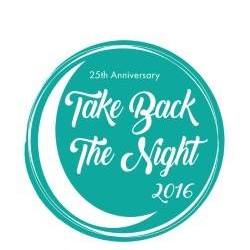 This event is to honor those who have experienced violence and assault and to empower survivors. The New Orleans Take Back The Night march will involve Loyola University, Tulane University, Dillard University, Holy Cross, Xavier University, University of New Orleans as well as organizations like New Orleans Family Justice Center, Louisiana Foundation Against Sexual Assault, Metropolitan Center for Women and Children, Sexual Assault Nurse Examiners and Sexual Trauma Awareness and Response. If you have experienced street harassment and would like to share your story, you can submit your story and also find a list of resources such as hotlines,
This event is to honor those who have experienced violence and assault and to empower survivors. The New Orleans Take Back The Night march will involve Loyola University, Tulane University, Dillard University, Holy Cross, Xavier University, University of New Orleans as well as organizations like New Orleans Family Justice Center, Louisiana Foundation Against Sexual Assault, Metropolitan Center for Women and Children, Sexual Assault Nurse Examiners and Sexual Trauma Awareness and Response. If you have experienced street harassment and would like to share your story, you can submit your story and also find a list of resources such as hotlines,
counseling, and events.
Sequoya is a Native American and Italian woman from Chicago who fell in love with New Orleans. She’s currently a Sociology Major at Loyola University New Orleans and supports her higher education habit by slinging drinks to the masses. She aspires to attain a PhD and write a best seller. She currently operates a small blog.

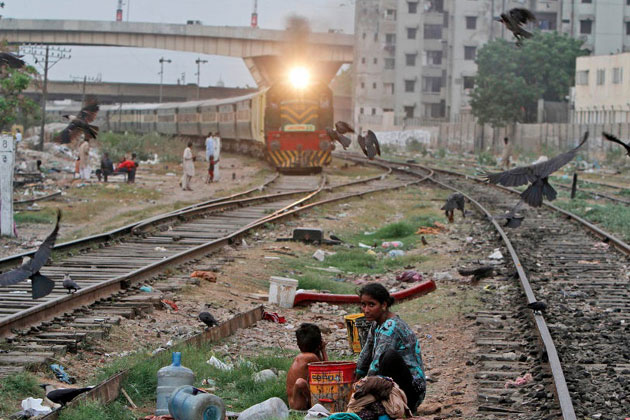
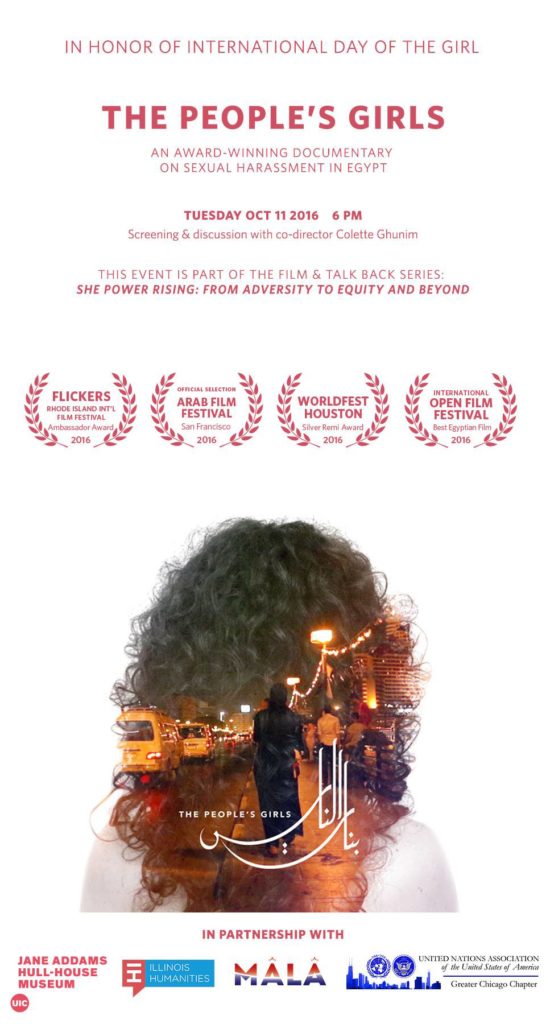
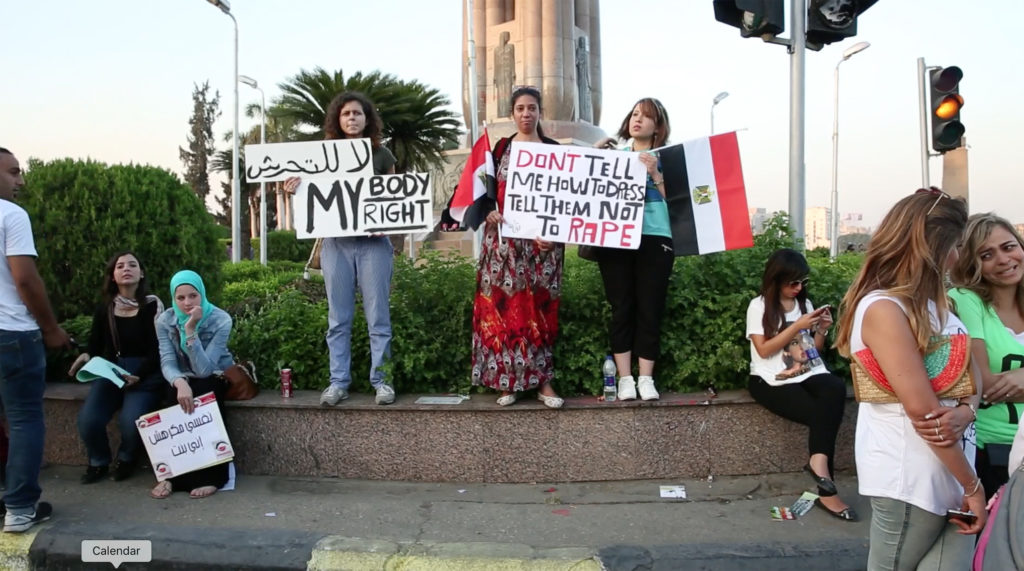 S
S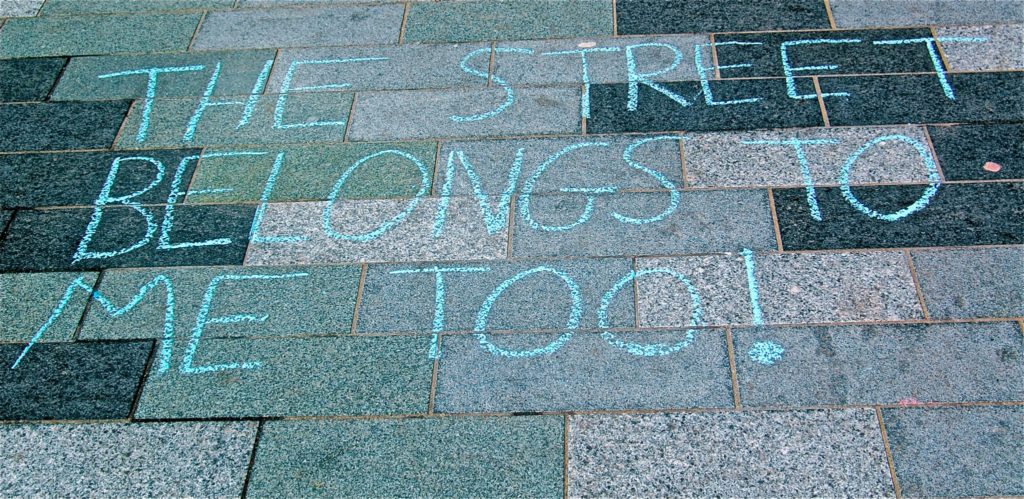 Street harassment is always an unpleasant experience. Catcalls, whistles, instances of being followed or grabbed in public places, inevitably leave victim feeling scared, threatened or embarrassed. What is perhaps even more disturbing is that most women experience street harassment for the first time as children. Young people often fall victim to a particularly malevolent form of harassment because of their increased vulnerability: they are more likely to be startled by a passing car screaming obscenities, more likely to be rattled by a sexist or degrading comment, and more likely to be coerced by a man who won’t take no for an answer.
Street harassment is always an unpleasant experience. Catcalls, whistles, instances of being followed or grabbed in public places, inevitably leave victim feeling scared, threatened or embarrassed. What is perhaps even more disturbing is that most women experience street harassment for the first time as children. Young people often fall victim to a particularly malevolent form of harassment because of their increased vulnerability: they are more likely to be startled by a passing car screaming obscenities, more likely to be rattled by a sexist or degrading comment, and more likely to be coerced by a man who won’t take no for an answer.